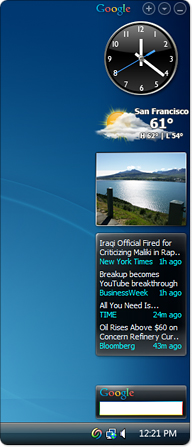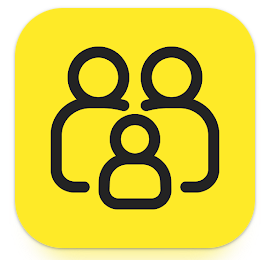Related Research Articles
Multimedia Messaging Service (MMS) is a standard way to send messages that include multimedia content to and from a mobile phone over a cellular network. Users and providers may refer to such a message as a PXT, a picture message, or a multimedia message. The MMS standard extends the core SMS capability, allowing the exchange of text messages greater than 160 characters in length. Unlike text-only SMS, MMS can deliver a variety of media, including up to forty seconds of video, one image, a slideshow of multiple images, or audio.
Personalized marketing, also known as one-to-one marketing or individual marketing, is a marketing strategy by which companies leverage data analysis and digital technology to deliver individualized messages and product offerings to current or prospective customers. Advancements in data collection methods, analytics, digital electronics, and digital economics, have enabled marketers to deploy more effective real-time and prolonged customer experience personalization tactics.

Direct marketing is a form of communicating an offer, where organizations communicate directly to a pre-selected customer and supply a method for a direct response. Among practitioners, it is also known as direct response marketing. In contrast to direct marketing, advertising is more of a mass-message nature.

Google Desktop was a computer program with desktop search capabilities, created by Google for Linux, Apple Mac OS X, and Microsoft Windows systems. It allowed text searches of a user's email messages, computer files, music, photos, chats, web pages viewed, and the ability to display "Google Gadgets" on the user's desktop in a sidebar.
Google Alerts is a content change detection and notification service, offered by Google. The service sends emails to the user when it finds new results—such as web pages, newspaper articles, blogs, or scientific research—that match the user's search term(s). In 2003, Google launched Google Alerts, which were the result of Naga Kataru's efforts. His name is on the three patents for Google Alerts.
Personalization consists of tailoring a service or product to accommodate specific individuals. It is sometimes tied to groups or segments of individuals. Personalization involves collecting data on individuals, including web browsing history, web cookies, and location. Various organizations use personalization to improve customer satisfaction, digital sales conversion, marketing results, branding, and improved website metrics as well as for advertising. Personalization acts as a key element in social media and recommender systems. Personalization influences every sector of society — be it work, leisure, or citizenship.
Mobile marketing is a multi-channel online marketing technique focused at reaching a specific audience on their smartphones, feature phones, tablets, or any other related devices through websites, e-mail, SMS and MMS, social media, or mobile applications. Mobile marketing can provide customers with time and location sensitive, personalized information that promotes goods, services, appointment reminders and ideas. In a more theoretical manner, academic Andreas Kaplan defines mobile marketing as "any marketing activity conducted through a ubiquitous network to which consumers are constantly connected using a personal mobile device".
Google Personalized Search is a personalized search feature of Google Search, introduced in 2004. All searches on Google Search are associated with a browser cookie record. When a user performs a search, the search results are not only based on the relevance of each web page to the search term, but also on which websites the user visited through previous search results. This provides a more personalized experience that can increase the relevance of the search results for the particular user. Such filtering may also have side effects, such as the creation of a filter bubble.
A mobile campaign is a campaign, usually marketing, advertising, or public relations-related, through which organizations contact their audience through SMS. This form of campaigning allows organizations to reach out and establish relationships with an audience in a more individualized, intimate way. The foundational function of mobile campaigns is regularly referred to as mobile marketing. A campaign's goal can have varied consumer consumption objectives including flashing, informing or engaging. Mobile campaigns have developed from the periphery of advertising to being an integral part of an effective marketing strategy. Online advertising is the second largest advertising spend at $113 billion, next to television's $196.5 billion. Near the introduction of mobile campaigns, they were primarily created to boost the impact of primary campaigns. A good example of one of the first mobile campaigns is the viewer voting system employed in American Idol. Using the American Idol example, the primary campaign was television, and the engagement was mobile, “watch this show, and text to vote”. In 2012, there were over 131 million votes in a single night, setting the world mobile voting record. With over 90% of Americans having cell phones, and there being over 6.8 billion cell phones in circulation globally versus 2.4 billion with internet access, mobile campaigns are evolving to be the way of the future in advertising and consumer engagement.
Chikka, short for Chikka Text Messenger, was an Internet-based instant messaging application that supported free SMS or text messaging between online users and offline mobile subscribers. Chikka was released by Chikka Philippines, Inc. in 2000 and eventually established its connection with the country's network operators Smart Communications (2001), Globe Telecom (2002) and Sun Cellular (2004). With up to billions of messages being exchanged between online and mobile communities worldwide through Chikka, it is probably the world's first commercially successful integration of web and mobile utilities.
Smart tags are an early selection-based search feature, found in later versions of Microsoft Word and beta versions of the Internet Explorer 6 web browser, by which the application recognizes certain words or types of data and converts it to a hyperlink. It is also included in other Microsoft Office programs as well as Visual Web Developer. Selection-based search allows a user to invoke an online service from any other page using only the mouse. Microsoft had initially intended the technology to be built into its Windows XP operating system but changed its plans due to public criticism.

Alert messaging is machine-to-person communication that is important or time-sensitive. An alert may be a calendar reminder or a notification of a new message.

The Gmail interface makes Gmail unique amongst webmail systems for several reasons. Most evident to users are its search-oriented features and means of managing e-mail in a "conversation view" that is similar to an Internet forum.
Change detection and notification (CDN) is the automatic detection of changes made to World Wide Web pages and notification to interested users by email or other means.

Norton Family is an American cloud-based parental control service. Norton Family is aimed at "fostering communication" involving parents and their children's online activities. Computer activities are monitored by the software client, and reports are published online.
idio Ltd. is an enterprise software company that produces and implements products for brands and publishers. To do so, idio uses its cloud-hosted platform, which incorporates modules for large-scale content aggregation and structuring, content analytics, multi-channel marketing automation, and customer insight generation. idio has offices in London and Exeter in the UK.

Google Catalogs was a shopping application for tablet computers, which was produced by Google in August 2011. Google Catalogs delivered virtual catalogs to users from merchants like Nordstrom, L.L. Bean, Macy's, Pottery Barn, and many more. Merchants were added through a process by which they submitted a form with information and a sample of their catalog, which was then reviewed by Google's editorial team. The application was noted as a "Greener Way to Shop", as the digitization of catalogs substituted for paper versions.
The commercialization of the Internet encompasses the creation and management of online services principally for financial gain. It typically involves the increasing monetization of network services and consumer products mediated through the varied use of Internet technologies. Common forms of Internet commercialization include e-commerce, electronic money, and advanced marketing techniques including personalized and targeted advertising. The effects of the commercialization of the Internet are controversial, with benefits that simplify daily life and repercussions that challenge personal freedoms, including surveillance capitalism and data tracking. This began with the National Science Foundation funding supercomputing center and then universities being able to develop supercomputer sites for research and academic purposes.

The 2018 Google data breach was a major data privacy scandal in which the Google+ API exposed the private data of over five hundred thousand users.

iOS 16 is the sixteenth major release of Apple's iOS mobile operating system for the iPhone. It is the successor of iOS 15, and was announced at the company's Worldwide Developers Conference (WWDC) on June 6, 2022, alongside iPadOS 16, and released on September 12, 2022. It was succeeded by iOS 17 on September 18, 2023.
References
- ↑ Wortham, Jenna (2009-02-10). "Trackle Puts Web Alerts Into Hyperdrive". Bits. Retrieved 2018-07-16.
- ↑ Lowensohn, Josh (2009-02-09). "Trackle makes Web alerts easy, manageable". CNET . Retrieved 2018-07-16.
- ↑ "Trackle". Thrillist. 2009-03-12. Retrieved 2018-07-16.